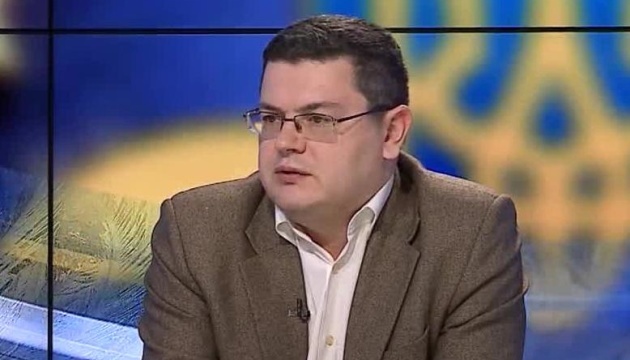
Ratification of Rome Statute necessary for more effective punishment of Putin – Merezhko
The ratification of the Rome Statute is in Ukraine's national interest, as the International Criminal Court established by this document is one of the few international legal mechanisms capable of bringing Vladimir Putin and other Russian war criminals to justice.
Chairman of the Ukrainian Verkhovna Rada Committee on Foreign Policy and Interparliamentary Cooperation Oleksandr Merezhko said this in a commentary to Ukrinform.
“The International Criminal Court, established by the Rome Statute, is now the most authoritative international judicial body with criminal jurisdiction. 124 countries are States Parties to the ICC. This is very important for Ukraine, as the International Criminal Court is one of the few international legal mechanisms that allows for the prosecution of Russian war criminals, primarily Putin and other individuals suspected of committing genocide against the Ukrainian people and other war crimes. Indeed, this is the sole efficacious international legal instrument currently available for addressing the issue of the accountability of Russian war criminals,” Merezhko said.
He recalled that Ukraine had signed the Rome Statute in 2000, but the document had only recently been submitted for ratification.
“This has been a long-standing commitment on our part. For example, we have a reference to the Rome Statute in the Constitution. This is an obligation that stems from the EU-Ukraine Association Agreement. This is our obligation, in fact, under an international treaty. Additionally, several security agreements, particularly those with Germany, stipulate Ukraine's obligation to ratify the Rome Statute as soon as possible. However, the primary consideration is that this is in the country's national interest, and there are no associated risks because we have already agreed to the jurisdiction of the International Criminal Court,” the MP said.
He recalled that the Verkhovna Rada had made two statements on accepting the jurisdiction of the International Criminal Court. The first one concerned the Revolution of Dignity and crimes against humanity committed against its participants. The second statement related to Russia's aggression in 2014, and it referred to war crimes committed by the Russian military against Ukraine.
“That is, we have already agreed to the ICC's jurisdiction. The failure to ratify the Rome Statute is a misstep, as Ukraine loses more from this. We cannot fully participate in the work of the International Criminal Court, for example, in the Assembly of States Parties. We cannot nominate our own candidate for prosecutor or judge. Without ratifying the statute, we are outside the processes. At the same time, we have essentially already agreed to the ICC's jurisdiction. That is, we have certain responsibilities, but no rights,” Merezhko underscored.
At the same time, he assured that the ratification of the Rome Statute would not lead to the persecution of Ukrainian service members.
“Firstly, we have already agreed to the ICC’s jurisdiction. It is illogical to believe that such a risk will arise. Secondly, there is Article 17 of the Rome Statute, which deals with the admissibility of cases. It says that the ICC considers cases when they cannot be investigated by a national court. This is called the principle of complementarity. The International Criminal Court, in fact, serves as an auxiliary entity in relation to national courts and the national law enforcement system. Thirdly, the documents of the draft law on the ratification of the Rome Statute indicate that Ukraine will issue a declaration in accordance with Article 124 of the Rome Statute. This stipulates that for a period of seven years following ratification, the International Criminal Court will not have jurisdiction over Ukrainian citizens in relation to war crimes. This constitutes an additional safeguard,” said Merezhko.
According to him, the need to ratify the Rome Statute is evidenced by the incident with Mexico.
“The newly-elected president of this country invited Putin to the inauguration. However, Mexico is a state party to the Rome Statute. That is, it must respect the arrest warrant for Putin issued by the International Criminal Court. Given that Ukraine has not yet ratified the statute, we are not yet a full member of the ICC. Consequently, it is more challenging for us to raise this issue with Mexico. If we were a state party to the Rome Statute, we could have directly raised this issue with Mexico and insisted that it execute the arrest warrant for Putin as soon as he appeared on their territory. Yet, Mexico found a loophole to let Putin through and promised not to arrest him, which is a violation,” the MP stressed.
He also recalled the story of South Africa. “South Africa concluded that if Putin came to their territory, they would be obliged under the Rome Statute to execute the arrest order, and Putin did not come. Thus, such precedents already exist. And is each such case, we must advocate for advocate for relevant measures. Putin should be banned from 124 countries,” Merezhko stressed.
As reported by Ukrinform, on August 15, President of Ukraine Volodymyr Zelensky registered a bill in the Verkhovna Rada on the ratification of the Rome Statute of the International Criminal Court and amendments to it. Draft law No.0285 was published on the parliament's website.
